- 0086-571-85302990
- sales@greenskybio.com
How can konjac powder appeal to health - conscious consumers?
2024-12-13

1. Introduction
In today's health - conscious society, consumers are constantly seeking food products that not only taste good but also offer significant health benefits. Konjac Powder has emerged as a promising ingredient in this regard. It is derived from the konjac plant, which has been used in Asian cuisine for centuries. This article will explore how Konjac Powder can appeal to health - conscious consumers by examining its nutritional properties, its compatibility with various dietary lifestyles, and its potential applications in different food forms.
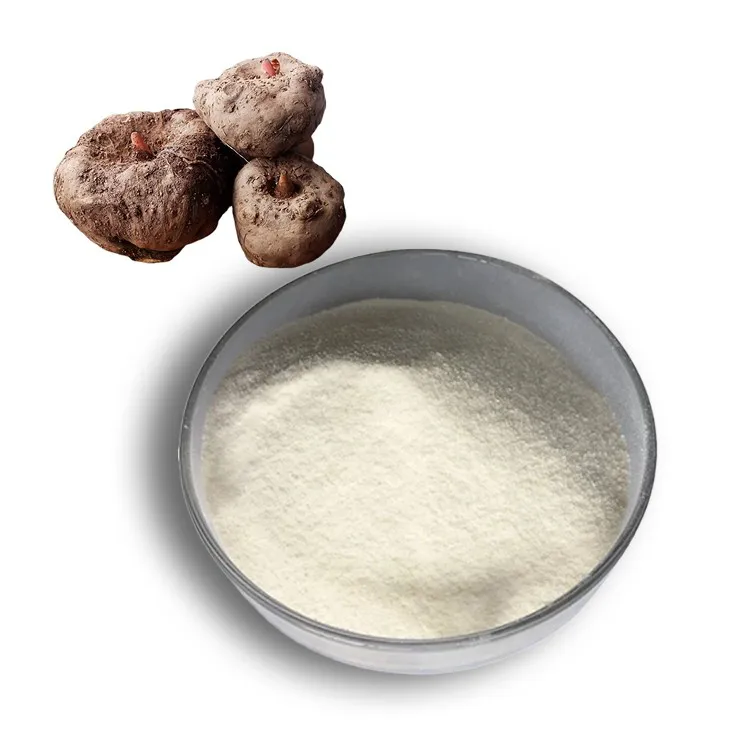
2. Nutritional Properties of Konjac Powder
2.1 High in Glucomannan
One of the key reasons why konjac powder is appealing to health - conscious consumers is its high content of glucomannan. Glucomannan is a type of soluble fiber that has several health - promoting properties.
2.2 Aids in Satiety
When consumed, glucomannan absorbs water and forms a gel - like substance in the stomach. This helps to create a feeling of fullness and can reduce overall calorie intake. For those looking to manage their weight or control their appetite, konjac powder can be a valuable addition to their diet.
2.3 Benefits for Digestion
The soluble fiber in konjac powder also has a positive impact on digestion. It can help to regulate bowel movements, prevent constipation, and promote a healthy gut microbiome. A healthy digestive system is essential for overall well - being, and konjac powder can contribute to this.
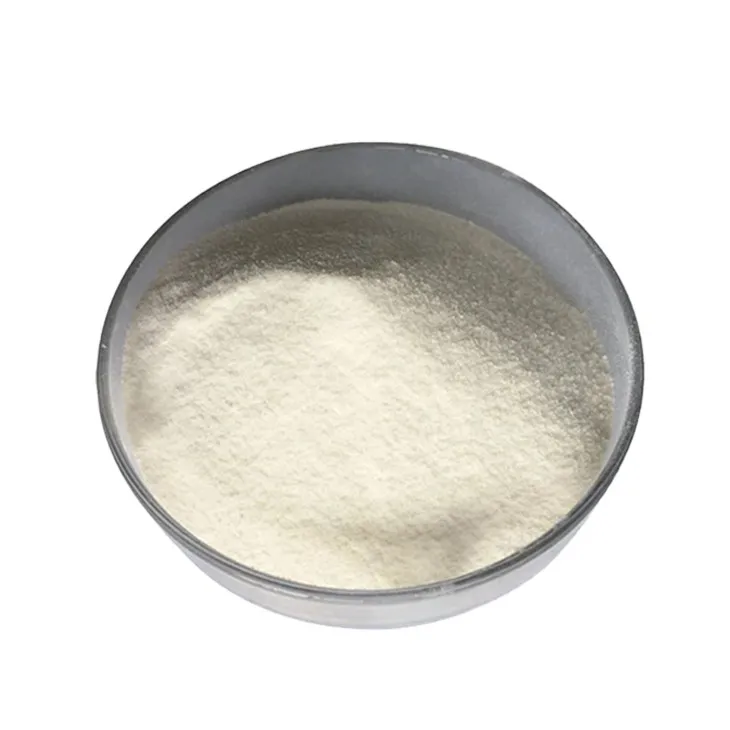
3. Compatibility with Dietary Lifestyles
3.1 Vegan - Friendly
Konjac powder is a great option for vegans. It is plant - based and does not contain any animal products. This makes it suitable for those following a vegan diet, who often struggle to find products that meet their dietary requirements.
3.2 Gluten - Free
For individuals with gluten intolerance or celiac disease, konjac powder is a gluten - free alternative. It can be used in place of gluten - containing ingredients in baking or cooking, allowing them to enjoy a wide range of foods without the risk of gluten exposure.
3.3 Low - Carb Diets
Konjac powder is also very low in carbohydrates, making it suitable for those following low - carb diets such as the ketogenic diet. It can be used to create low - carb versions of high - carb foods, such as pasta or bread, without sacrificing taste or texture.
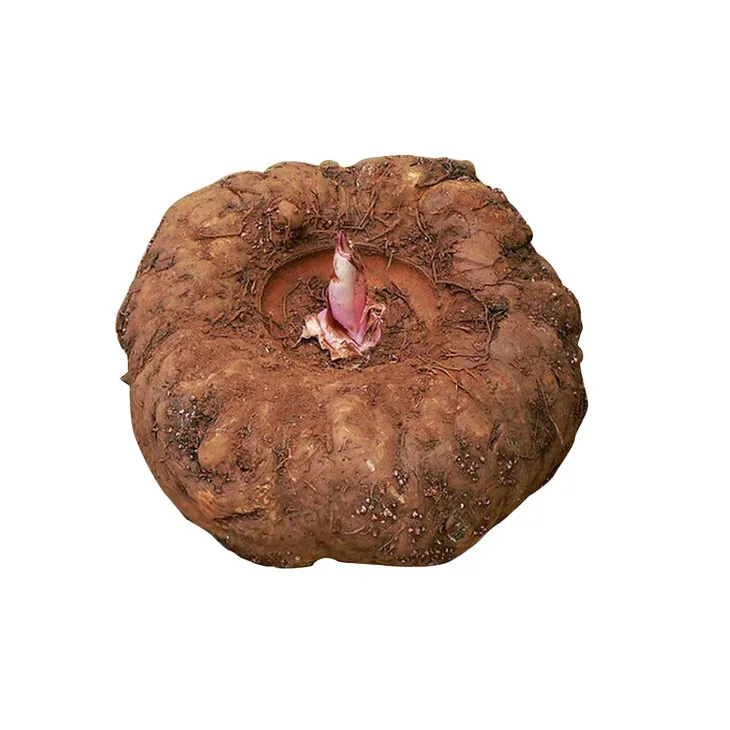
4. Applications in Different Food Forms
4.1 Konjac Noodles
One of the most popular applications of konjac powder is in the production of konjac noodles. These noodles are low in calories and carbohydrates, and high in fiber. They can be used as a substitute for traditional wheat - based noodles in a variety of dishes, such as stir - fries or soups.
4.2 Konjac Jelly
Konjac powder can also be used to make konjac jelly. These jellies are often flavored with fruit juices or other natural flavors and can be a refreshing and healthy snack. They are low in calories and can help to satisfy a sweet tooth without the added sugar.
4.3 Baking with Konjac Powder
In baking, konjac powder can be used to replace some of the flour in recipes. This can reduce the carbohydrate content of baked goods while still maintaining their texture and flavor. For example, it can be used to make low - carb muffins or cakes.
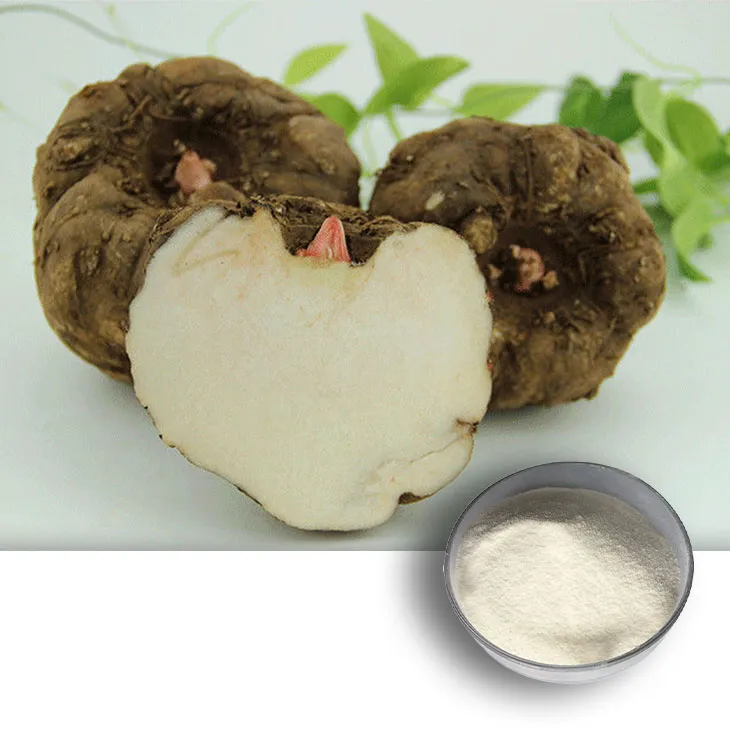
5. Marketing and Promotion to Health - Conscious Consumers
5.1 Highlighting Health Benefits
To appeal to health - conscious consumers, it is important to clearly communicate the health benefits of konjac powder. This can be done through product packaging, advertising, and marketing materials. For example, highlighting its high glucomannan content and its benefits for satiety and digestion.
5.2 Targeting Specific Dietary Lifestyles
Another effective marketing strategy is to target specific dietary lifestyles. For example, creating products specifically for vegans, those on gluten - free diets, or those following low - carb diets. This can help to build a loyal customer base among these consumer groups.
5.3 Providing Recipe Ideas
Offering recipe ideas can also be a great way to promote konjac powder to health - conscious consumers. This can show them how easy it is to incorporate konjac powder into their daily diet and inspire them to try new products. For example, providing recipes for konjac noodle stir - fries or low - carb konjac - based muffins.
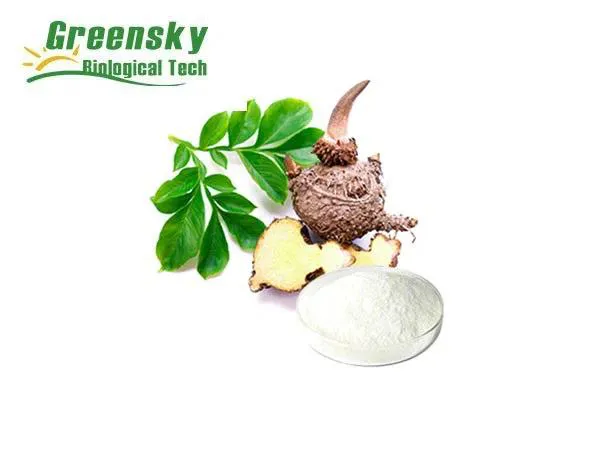
6. Conclusion
In conclusion, konjac powder has a great deal of potential to appeal to health - conscious consumers. Its rich nutritional profile, compatibility with various dietary lifestyles, and versatility in different food forms make it a valuable ingredient in the health - food market. By effectively marketing its health benefits and targeting specific consumer groups, konjac powder can become a popular choice among those seeking healthy and delicious food options.
FAQ:
Q1: What are the main nutritional components in konjac powder that appeal to health - conscious consumers?
Konjac powder contains glucomannan, which is a key component that appeals to health - conscious consumers. Glucomannan can help with satiety, making people feel full for longer periods, and it also aids in digestion.
Q2: How can konjac powder be incorporated into different diets for health - conscious consumers?
Konjac powder is highly versatile. For vegan diets, it can be used as a plant - based ingredient in various recipes. In gluten - free diets, it can replace gluten - containing ingredients. And in low - carb diets, it serves as a low - carbohydrate option. It can be added to smoothies, soups, or used to make konjac - based noodles or gels.
Q3: Is konjac powder suitable for all health - conscious consumers?
While konjac powder has many benefits, it may not be suitable for everyone. Some people may have allergies or sensitivities to it. Also, if not consumed properly, it can cause digestive discomfort. However, for the majority of health - conscious consumers who are looking for satiety - enhancing, low - calorie, and digestion - friendly food options, it can be a great choice.
Q4: How does konjac powder contribute to a healthy digestive system?
The glucomannan in konjac powder is a type of soluble fiber. When consumed, it absorbs water in the digestive tract, forming a gel - like substance. This helps to add bulk to the stool, promoting regular bowel movements and overall digestive health.
Q5: Can konjac powder help with weight management for health - conscious consumers?
Yes, it can. Due to its glucomannan content which provides a feeling of satiety, konjac powder can help consumers control their appetite. By reducing overall calorie intake, it can be a useful tool for those aiming for weight management as part of a healthy lifestyle.
Q6: Are there any potential side effects of consuming konjac powder?
Some possible side effects may include mild digestive issues such as bloating or gas if consumed in large amounts. Also, if konjac products are not properly prepared, they may pose a choking hazard as they can form large, gummy masses. However, when consumed in moderation and as part of a balanced diet, these risks are generally low.
Related literature
- The Nutritional and Health Benefits of Konjac Powder"
- "Konjac Powder in Dietary Interventions for Health"
- "Glucomannan from Konjac: A Review of its Role in Health - Conscious Diets"
- ▶ Hesperidin
- ▶ Citrus Bioflavonoids
- ▶ Plant Extract
- ▶ lycopene
- ▶ Diosmin
- ▶ Grape seed extract
- ▶ Sea buckthorn Juice Powder
- ▶ Fruit Juice Powder
- ▶ Hops Extract
- ▶ Artichoke Extract
- ▶ Mushroom extract
- ▶ Astaxanthin
- ▶ Green Tea Extract
- ▶ Curcumin
- ▶ Horse Chestnut Extract
- ▶ Other Product
- ▶ Boswellia Serrata Extract
- ▶ Resveratrol
- ▶ Marigold Extract
- ▶ Grape Leaf Extract
- ▶ New Product
- ▶ Aminolevulinic acid
- ▶ Cranberry Extract
- ▶ Red Yeast Rice
- ▶ Red Wine Extract
-
Red Vine Extract
2024-12-13
-
Alisma Extract
2024-12-13
-
Grapefruit Seed Extract Powder
2024-12-13
-
Black Pepper Extract
2024-12-13
-
Nettle Root Extract
2024-12-13
-
Beta Carotene
2024-12-13
-
Bayberry Extract
2024-12-13
-
Chia Seed Powder
2024-12-13
-
Tormentil Extract
2024-12-13
-
Epimedium extract powder
2024-12-13





















